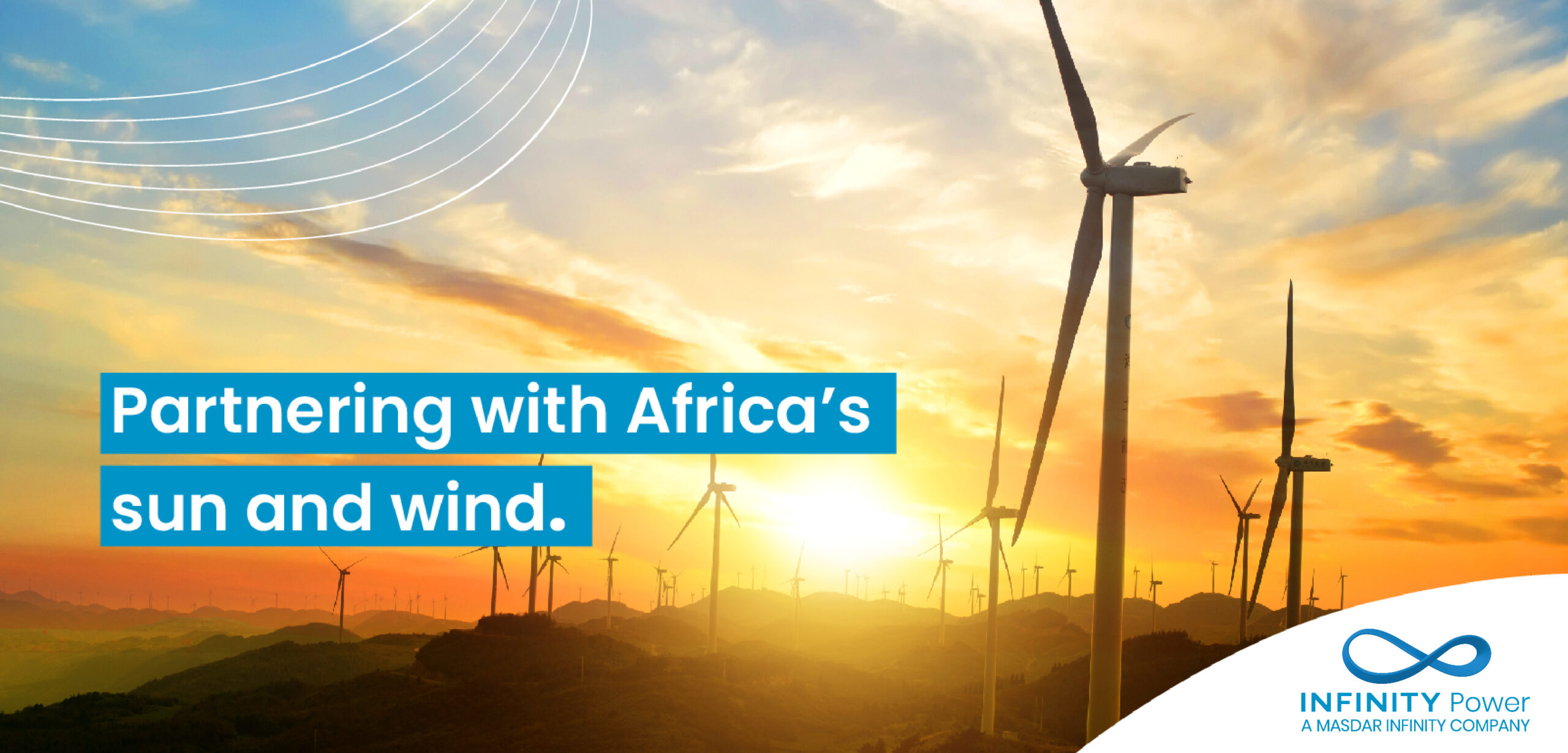- Alpha Dhabi Holding looking to snag majority stake in Metito Holdings. (M&A Watch)
- Adnoc + Taqa’s sustainable water project reaches financial close. (Water Treatment)
- Worley lands contract for QatarEnergy LNG’s CCS project. (Solar)
- Egypt attracts bids for five renewables-powered desalination projects. (Desalination)
- Western countries are reneging on financing Indonesia’s coal plant decommissioning plan. (Around the World)
- Shell is setting up its blue hydrogen + ammonia plant in Oman’s Duqm. (Also on Our Radar)
- New green transition strategies could boost emerging markets’ economic output by 4% in two years, IMF says. (What We’re Tracking Today)
- A British deep-tech company is recycling e-waste to support growth in AI. (On Your Way Out)

Tuesday, 26 September 2023
Alpha Dhabi eyes majority stake in Metito
TL;DR
WHAT WE’RE TRACKING TODAY

Good morning, ladies and gentlemen. We can’t say the news cycle has slowed down, but it has done a bit of shape-shifting, giving us a morning with a handful of significant stories to keep us busy.
THE BIG CLIMATE STORY- Alpha Dhabi Holding — one of the UAE’s biggest conglomerates — is set to snap up a majority stake in water management solutions provider Metito Holdings, with Mitsubishi Corporation, Mitsubishi Heavy Industries, and Gulf Capital set to sell their shares.
HAPPENING TODAY- Climate Future Week kicks off at Dubai’s Museum of the Future today and runs through this Saturday, 30 September. The event includes 20 main sessions and six workshops, bringing together 30 speakers including government ministers, business leaders, and sustainability experts, according to WAM. The three pillars will center around the future of climate action and the role of technology; the next generation of climate solutions; the role of entrepreneurship in creating new innovations supporting climate resilience; and the importance of enhancing climate awareness and human behavior to achieve climate goals. The event is organized by the Museum of the Future and Dubai's Fiker Institute.
THE BIG CLIMATE STORY OUTSIDE THE REGION- DHL and Sasol partner up with Germany’s HH2E on SAF production: German logistics firm DHL and South Africa’s Sasol — the world’s largest producer of fuels and chemicals from coal and gas — have entered an agreement with Berlin-based clean energy supplier HH2E to expand the production of sustainable aviation fuels (SAF) in Germany, according to a company statement. Under a new JV, the three companies will capitalize on green hydrogen production in the country to generate up to 200k tons of SAF annually from a planned production plant in the eastern part of the country, with plans to later expand volumes up to 500k tons per year. SAFs can be produced from a mix of renewables-powered hydrogen and carbon dioxide captured from the atmosphere.
French Aerospace company Airbus — which is already partnering with UAE renewables giant Masdar on SAF production — also intends to join the consortium to use the jet fuel in a bid to meet EU climate targets mandating that 2% of fuel available at EU airports be sourced from SAF in 2025, and 70% by 2050. Meanwhile, Sasol, which has set a target to slash its emissions by 30% by 2030, signed an agreement with Danish decarbonization company Topsoe in June to set up another SAF JV also relying on green hydrogen.
The story got some ink in the foreign press yesterday: Bloomberg | Reuters
OVER IN COPLAND- UAE and Indonesia join forces again to save the mangroves: Home to the most extensive mangrove ecosystems in the world, Indonesia plans on launching an international mangrove research center with the UAE at COP28, Arab News reports. Last year, the Mangrove Alliance for Climate was established by both countries at COP27 with the aim of promoting nature-based solutions for climate change.
The details: The planned international mangrove research center will be used for capacity-building, collaborative research on mangrove innovations and biotechnology, as well as biodiversity conservation. The research center will also focus on rehabilitating degraded mangrove forests, according to Agus Sari, CEO of environmental advisory agency Landscape Indonesia and former senior adviser to the UN Development Program.
The reasoning: The tropical plants can capture massive amounts of GHG from the atmosphere, trap, and store them in their carbon-rich flooded soils for millenia, making mangroves an effective and relatively cheap carbon-offsetting tool. Check out our explainer on it here.
WATCH THIS SPACE #1- Algeria is building its first solar power village: Algeria is set to issue a tender soon for the construction of its first solar power village, according to reports from El Khabar. The project will be located in the remote Southeastern desert of Illizi province, where supplying conventional electricity is expensive, but sun exposure is available year-round. This project’s tender documents are already prepared and are set to be made available soon to both domestic and international contractors.
WATCH THIS SPACE #2- Egypt’s Finance Ministry has its eyes on green infrastructure cooperation with the Asian Infrastructure Investment Bank, and has developed a roster of infrastructure projects to pitch to the bank for low-cost financing options during its annual meetings currently happening in Sharm El Sheikh, Vice Minister of Finance Ahmed Kouchouk tells Al Ahram. The ministry is looking to promote green infrastructure projects that can support sustainable development and foster green growth, Kouchouk said. Key areas of interest for development partnerships include renewable energy, sustainable transportation, and water, Al Ahram reports.
WATCH THIS SPACE #3- Portuguese energy giant Galp is investing EUR 650 mn (USD 692 mn) in two projects to reduce the carbon footprint of its refinery in Portugal’s Sines, according to a statement. The projects include an advanced biofuels unit with a production capacity of 270k tons annually, which Galp will set up through a joint venture with Japan’s Mitsui. Galp will invest EUR 400 mn in the biofuels unit. The remaining EUR 250 mn have been earmarked for a 100 MW green hydrogen unit.
REMEMBER- Mitsui already has a presence in the region, as it signed a shareholder agreement with Fertiglobe, GS Energy, and Adnoc-ADQ JV Ta’ziz to construct a facility to produce some 1 mn tons of blue ammonia per year. The company is still awaiting a final investment decision on the project, its most recent earnings release said.
DATA POINT- New green transition strategies could boost emerging markets’ economic output by 4% in two years, according to a new report by the International Monetary Fund (IMF). The IMF expects economic development policies geared toward decarbonization, lowering trade barriers, accelerating the transition to green energy, and ultimately creating a net-zero pathway could expand developing countries’ GDP by an estimated four percent by 2025, and eight percent by 2027. “Lowering trade barriers can increase access to low-carbon technology and facilitate technology transfers that are critical for the green transition in less technologically advanced countries,” the IMF said, but cautioned against rapid economic policies without factoring in the emissions resulting from the expansion of industry.
“Stringent green reforms, such as energy taxation, regulations and green investments, are necessary to significantly reduce the emission intensity of economic activity. Combining economic and green reforms will allow these [emerging] economies to reduce their overall emissions while supporting growth,” the IMF said. In July, the United Nations Conference on Trade and Development said developing markets need to rake in an estimated USD 1.7 tn annually to meet clean energy targets — more than triple the amount they received in 2022.
|
***
YOU’RE READING ENTERPRISE CLIMATE, the essential MENA publication for senior execs who care about the world’s most important industry. We’re out Monday through Thursday by 5am Cairo / 5am Riyadh / 6am UAE.
EXPLORE MORE OF ENTERPRISE ON THE WEB — tap or click here to read EnterpriseAM, EnterprisePM, and The Weekend Edition on our powerful new website packed with reader-friendly features.
Were you forwarded this email? Get your own subscription without charge here or reach out to us on climate@enterprisemea.com with comments, suggestions and story tips.
***
CIRCLE YOUR CALENDAR-
Algeria will host its International Fair on Environment and Renewable Energy (Sieera) from tomorrow through Friday at Algiers’ Exhibition Palace. The conference will see local and international exhibitors debut their green tech offerings, and will include workshops and talks centered on accelerating the transition to clean energy sources with a focus on the role climate and green tech-focused startups and SMEs can play to create a net-zero pathway. The guest of honor for this year’s addition will be South Korea, and Sieera aims to capitalize on the country’s green tech know-how and capabilities to facilitate knowledge transfer and collaboration agreements between the developers of both countries.
Check out our full calendar on the web for a comprehensive listing of upcoming news events, national holidays and news triggers.
M&A WATCH
Conglomerate Alpha Dubai eyes majority stake in Metito Holdings
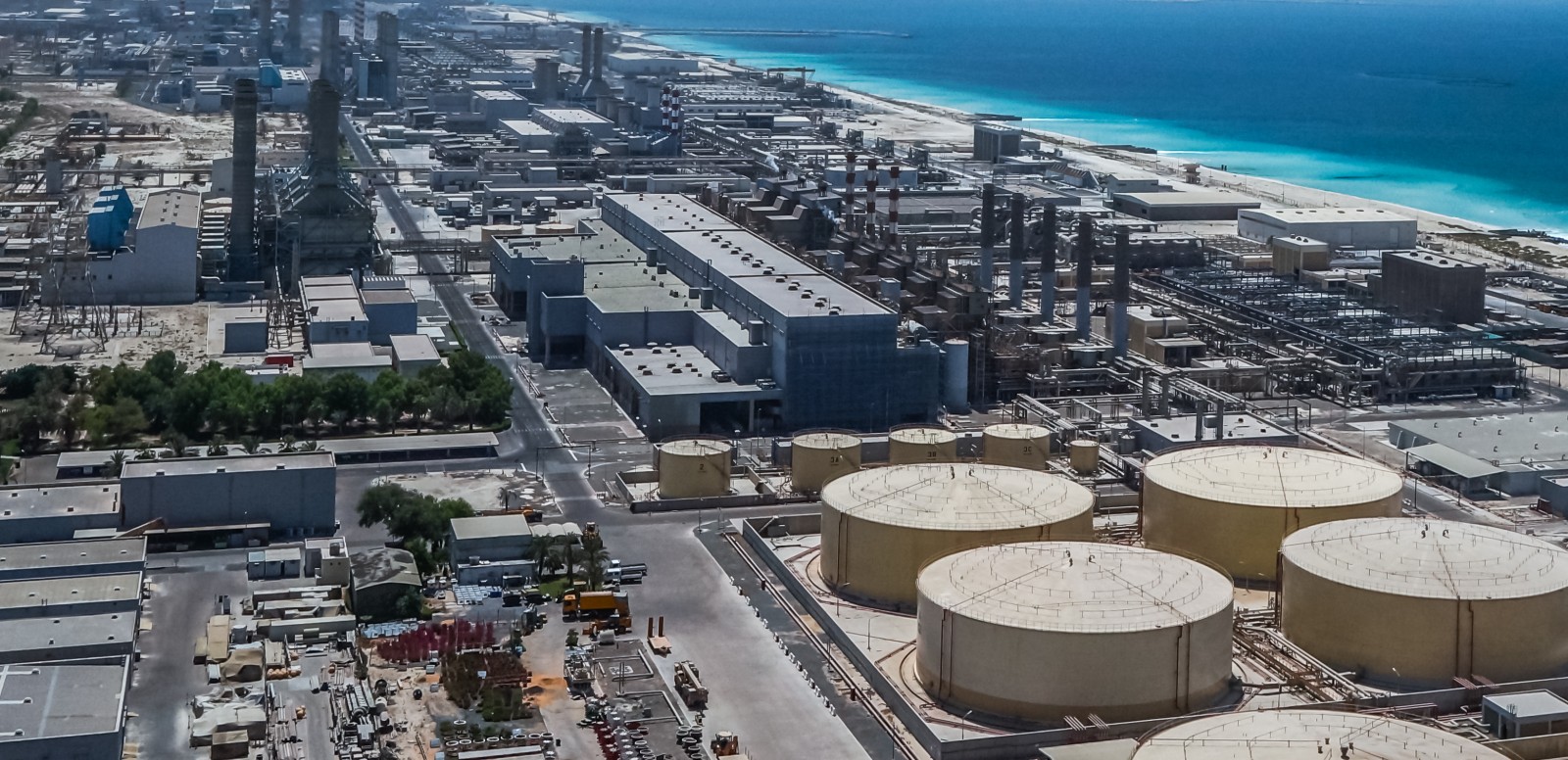
Alpha Dhabi set to buy majority shares in desal and wastewater treatment giant Metito: One of UAE’s biggest conglomerates, Alpha Dhabi Holding, is planning to acquire a majority stake in local water management solutions provider Metito Holdings pending regulatory approvals, according to a company statement. The agreement would help finance Metito’s plans to expand its smart water solutions across the MENA region, the statement said. The two companies did not disclose the size or value of the stake to be purchased.
Who’s selling? Alpha Dhabi said it plans to acquire the stake from Metito's selling shareholders Japan’s Mitsubishi Corporation and Mitsubishi Heavy Industries, as well as Abu Dhabi-based asset manager Gulf Capital. Metito’s founding shareholders — the Ghandour family — will continue to manage the firm.
What they said: “Together, we aim to address the pressing water challenges, especially in the MENA region, which is the most water-stressed region globally,” Metito co-CEO Talal Ghandour said. “We are poised to make significant contributions to sustainable solutions, especially as the UAE’s Year of Sustainability and COP28 gain traction,” co-CEO Rami Ghandour added.
Metito is expanding regionally: The water development company is in talks to establish four desalination plants to support Egyptian green hydrogen production facilities, Metito Managing Director Karim Madwar told Al Mal in July. Metito partnered with Taqa, Orascom Construction (OC), and the Abu Dhabi National Oil Company (Adnoc) in May to establish a USD 2.4 bn mega seawater treatment and water supply project in the UAE. Metito is also currently constructing the Al Mahsama agricultural drainage treatment plant in Sinai, Egypt and a treatment and recycling plant in Sharjah, UAE.
And is entering partnerships to facilitate financing for water projects in Africa: In March, Metito launched the investment platform Africa Water Infrastructure Development (AWID) in partnership with British International Investment with the aim of reducing funding gaps in sustainable water projects. The AWID-Metito JV has been seeded with a desalination project in Egypt’s Sharm El Sheikh and a water treatment facility in Kigali, Rwanda.
About Alpha Dhabi: The state-linked firm is a subsidiary of one of the UAE’s most valuable companies, International Holding Company, and works in sectors including construction, hospitality, and healthcare. It is also one of the largest shareholders in Aldar — the new co-owners of Egyptian real estate giant SODIC alongside Abu Dhabi sovereign wealth fund ADQ. Alpha Dhabi went public on the ADX over the summer.
WATER TREATMENT
Project update: Adnoc + Taqa’s sustainable water project reaches financial close
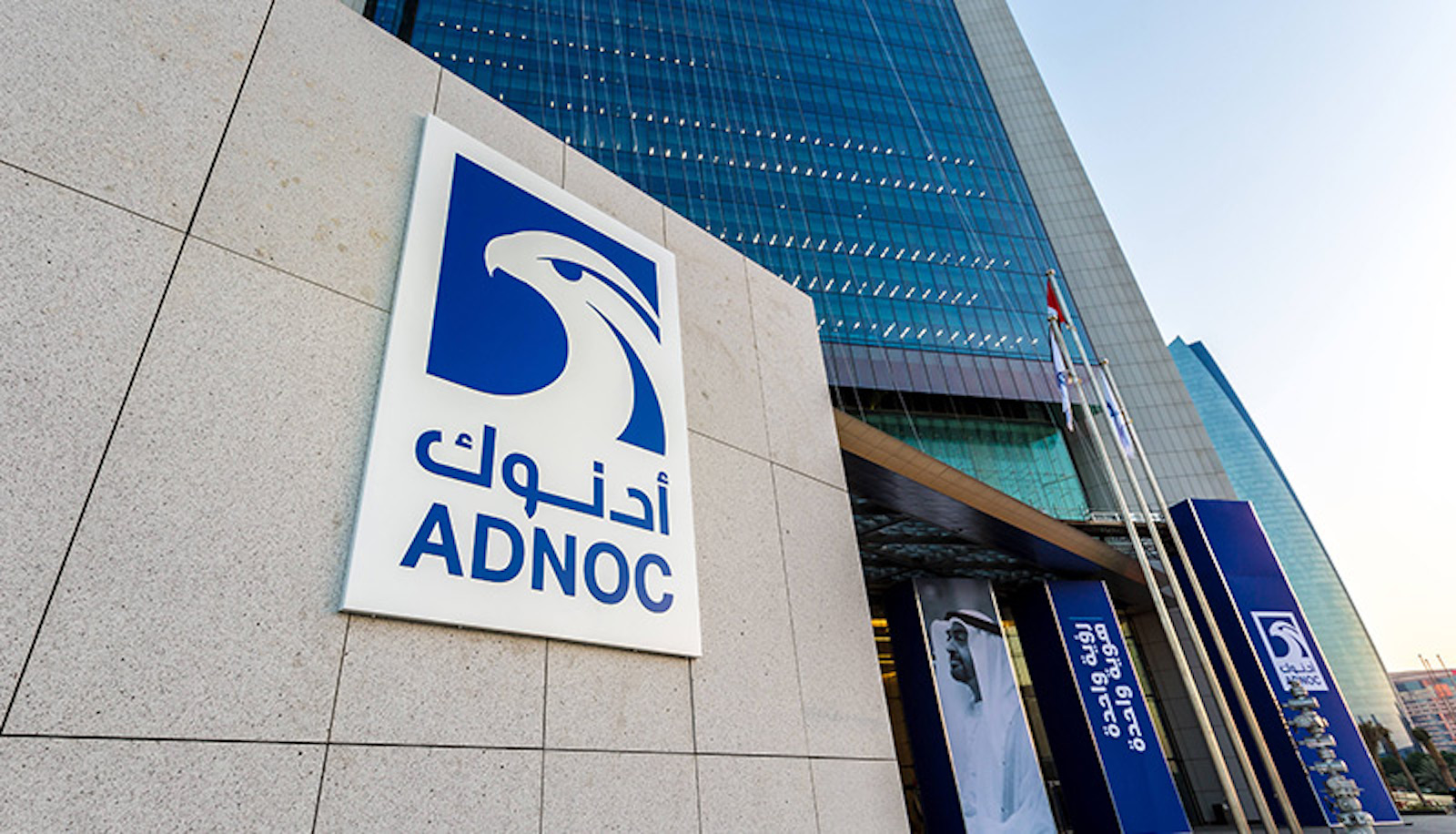
Abu Dhabi National Oil Company (Adnoc) and Abu Dhabi’s National Energy Company (Taqa) reached financial close on their USD 2.2 bn seawater treatment and sustainable water supply project for Adnoc’s onshore operations, according to a company statement. The project will be financed by a consortium of nine local and international banks — First Abu Dhabi Bank (FAB), Gulf International Bank (GIB), Natixis, Abu Dhabi Commercial Bank (ADCB), Abu Dhabi Islamic Bank (ADIB), Commercial Bank of Dubai (CBD), Emirates NBD (ENBD), Emirates Development Bank (EDB), and Warba Bank — through a combination of commercial and Islamic finance facilities, the statement said.
Refresher: A consortium comprised of Orascom and Metito will construct a large-scale greenfield development including a seawater nanofiltration plant with a treatment capacity of over 110 mn imperial gallons per day (c.500k cbm / day) to serve Adnoc’s onshore operations. It will also include seawater intake and outfall facilities, pumping stations, a 75-km water transmission pipeline, and an in-field distribution network of over 230 km to support reservoir pressure maintenance in the Bab and Bu Hasa oil fields in Abu Dhabi. The project is set to replace the aquifer water injection systems currently used by Adnoc in its onshore oil fields, allowing a sustainable water supply for the state oil giant’s onshore operations and preserving the country’s natural aquifer resources. It will also boost energy efficiency by up to 30% and slash Adnoc’s environmental footprint in comparison with the currently used injection system.
Adnoc has made headway in slashing CO2 emissions: Earlier this year, Adnoc said it would allocate USD 15 bn to decarbonization projects by 2030. The projects include investments in clean power, carbon capture and storage, electrification, and energy efficiency. The company set up a new division late last year focused on low-carbon solutions and international growth. It also reached financial close with Taqa last September on a USD 3.8 bn project to build a subsea transmission network designed to reduce emissions at offshore production facilities by providing them with mainland power.
SOLAR
Worley lands contract for QatarEnergy LNG’s CCS project
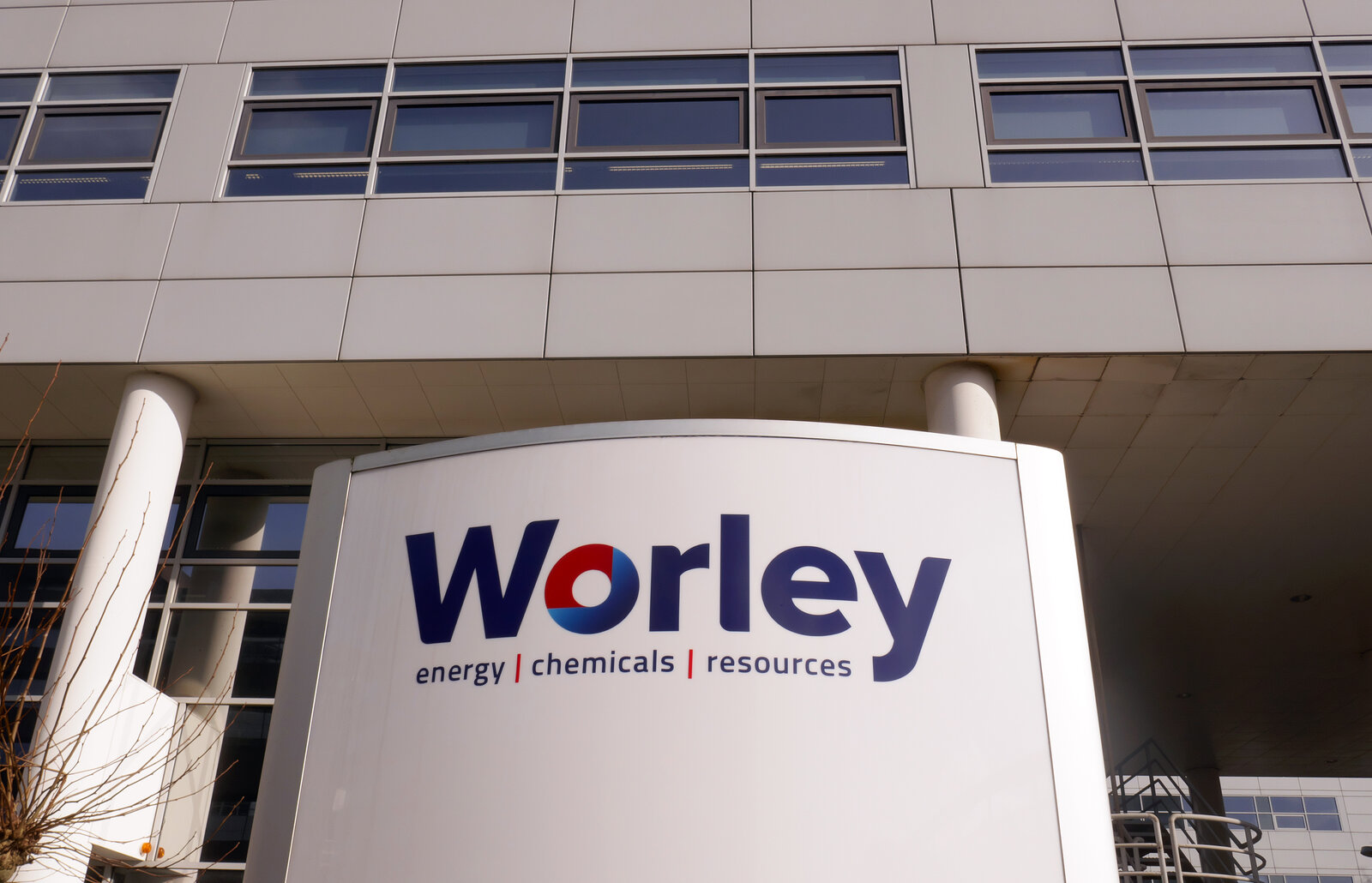
Worley is now responsible for FEED services for QatarEnergy’s CCS project: Australian contractor Worley has been awarded the front-end engineering and design (FEED) services contract for Qatargas’ carbon capture and storage (CCS) project in Ras Laffan, Qatar, according to a statement. Worley will develop the FEED study and engineering, procurement, and construction (EPC) work, to be completed in 2024. No financial details were disclosed in the statement.
About the project: The sequestration facility will have a capacity of 4.3 mT CO2 per annum, which will help reduce emissions from the company's liquefied natural gas (LNG) value chain from its seven trains at QG North and three LNG trains at QG South, the statement says. The captured CO2 will be compressed through new compression trains and pipelines and then injected into new injection wells. “This also presents [a chance] to use our in-depth knowledge of the region and global expertise in delivering FEED services to the CCUS sector to drive project delivery, as we work towards our purpose of delivering a more sustainable world,” Worley’s country manager in Qatar and Kuwait Nawar Chapman is quoted as saying.
REMEMBER- QatarEnergy — QatarEnergy LNG’s parent company — signed an MoU with GE last year to develop a carbon capture roadmap for Qatar’s energy sector and a carbon capture hub at Ras Laffan Industrial City.
Worley has other regional links: The Kuwait Oil Company (KOC) signed an agreement with Worley Consulting in January to conduct feasibility studies on installing renewable power across their gas fields as part of their 2050 net-zero target in its proposal for the installation of a 3.4-3.6 MW wind turbine. Worley was also selected by EDF Renewables and Kowepco earlier this month as the owner engineer for Oman’s 500 MW Manah solar plant.
DESALINATION
Egypt attracts bids for five renewables-powered desalination projects
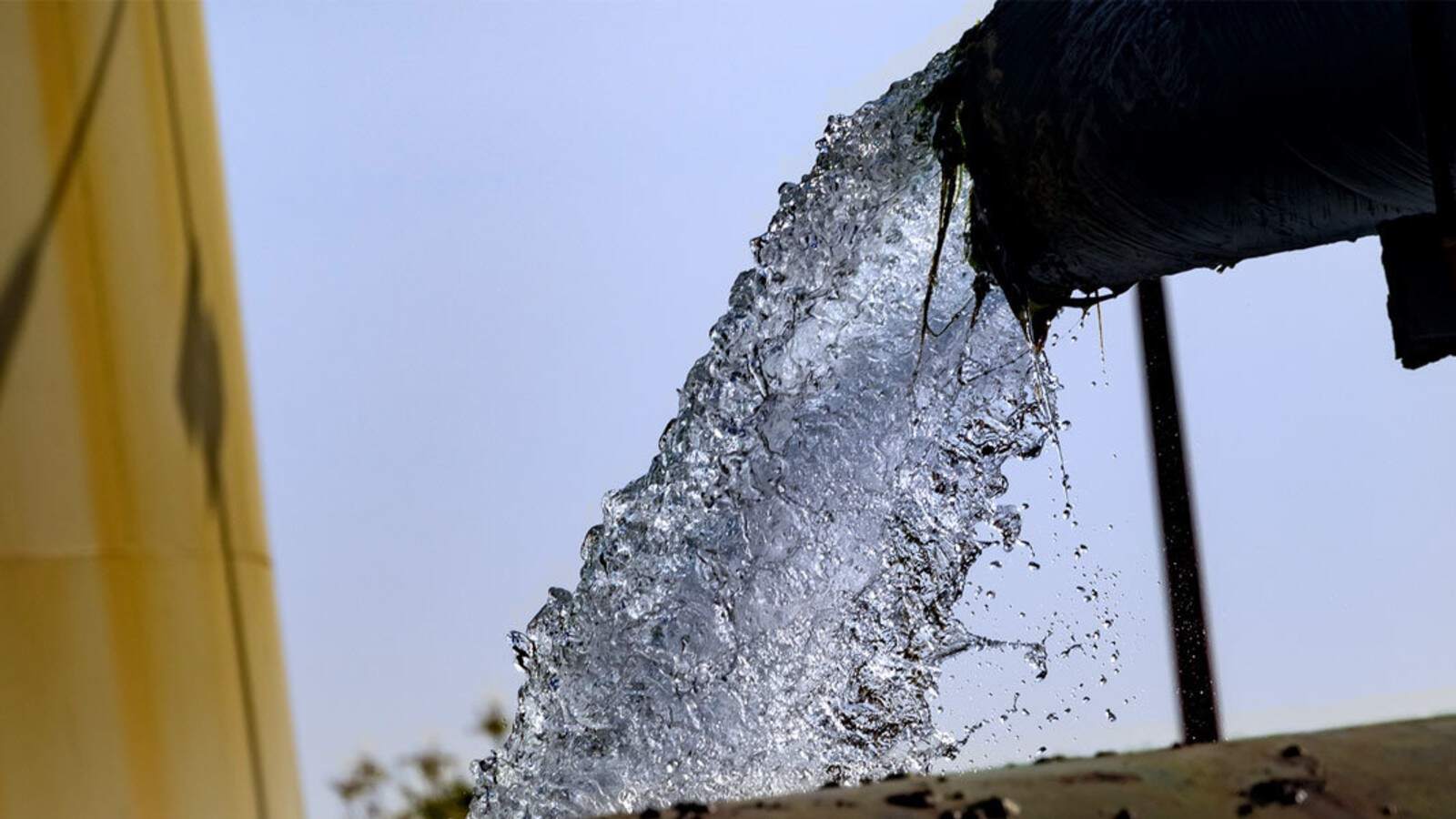
Egypt attracts bids for five renewables-powered desalination projects: Seven consortiums have bought the tender and conditions booklet for several planned renewables-powered desalination projects on Egypt’s North Coast from the Egyptian government, a government source told Enterprise Climate.
What we know: Interested developers — which include Saudi Arabia's Acwa Power, the UAE's Amea Power, Norway’s Scatec, Japan’s Toyota Tsushi, as well as local players Hassan Allam utilities, Madkour, Infinity Power, and Smart Engineering Solutions (SES) — are looking to snap up bids for up to four desalinations projects to be powered by solar energy projects yielding a combined 250 MW generation capacity in Egypt’s North Coast, with a total estimated price tag of USD 270 mn, our source said. Egypt’s Electricity and Renewable Energy Ministry began accepting tenders for the projects on Sunday, and will keep the process open till Friday, 27 October, Madkour and Amea Power told us, confirming a report by Al Mal.
Expected generation capacity and next steps: The projects will collectively have a desalination capacity of 300k cubic meters per day (cbm / d), according to our ministry source. The government will launch tenders for qualified companies for the desalination projects by December, according to the ministry. Local and international companies are currently preparing competitive levelized energy cost bid offers in preparation for submission to the government, according to Al Mal.
All under a BOO model: The renewables plants will be developed under a build-own-operate (BOO) framework, and Egypt’s government will offtake the clean energy produced from the concentrated solar power (CSP) farms under a 25-year power purchase agreement, according to Al Mal. The government is currently undertaking studies to determine competitive offtake purchase prices to lure in investors, and under plans to later issue green bonds, our source tells us. Egypt already has some 99 operational desalination plants in a country with a total capacity of 1.21 mn cbm / d, and has a target to increase its potable water conversion volume to 10 mn cbm / d by 2050, Al Mal notes.
REMEMBER- Egypt has more desalination projects in the offing: The Egyptian government has set a date for the sale of 21 desalination plants before the end of the country’s current fiscal year on 30 June 2024, four of which will be powered by renewables. Earlier this year, 17 regional and international consortiums prequalified for the tender process. Sovereign Fund of Egypt CEO Ayman Soliman said last year that the first phase of Egypt’s large-scale desalination expansion would cost about USD 3 bn, and that the total price tag of the project will be USD 8 bn. The sale comes under state plans to attract some USD 5 bn in direct private investments through the privatization of state-owned companies and assets.
CLIMATE DIPLOMACY
An Egypt-Hong Kong agreement on renewables infrastructure in the offing?
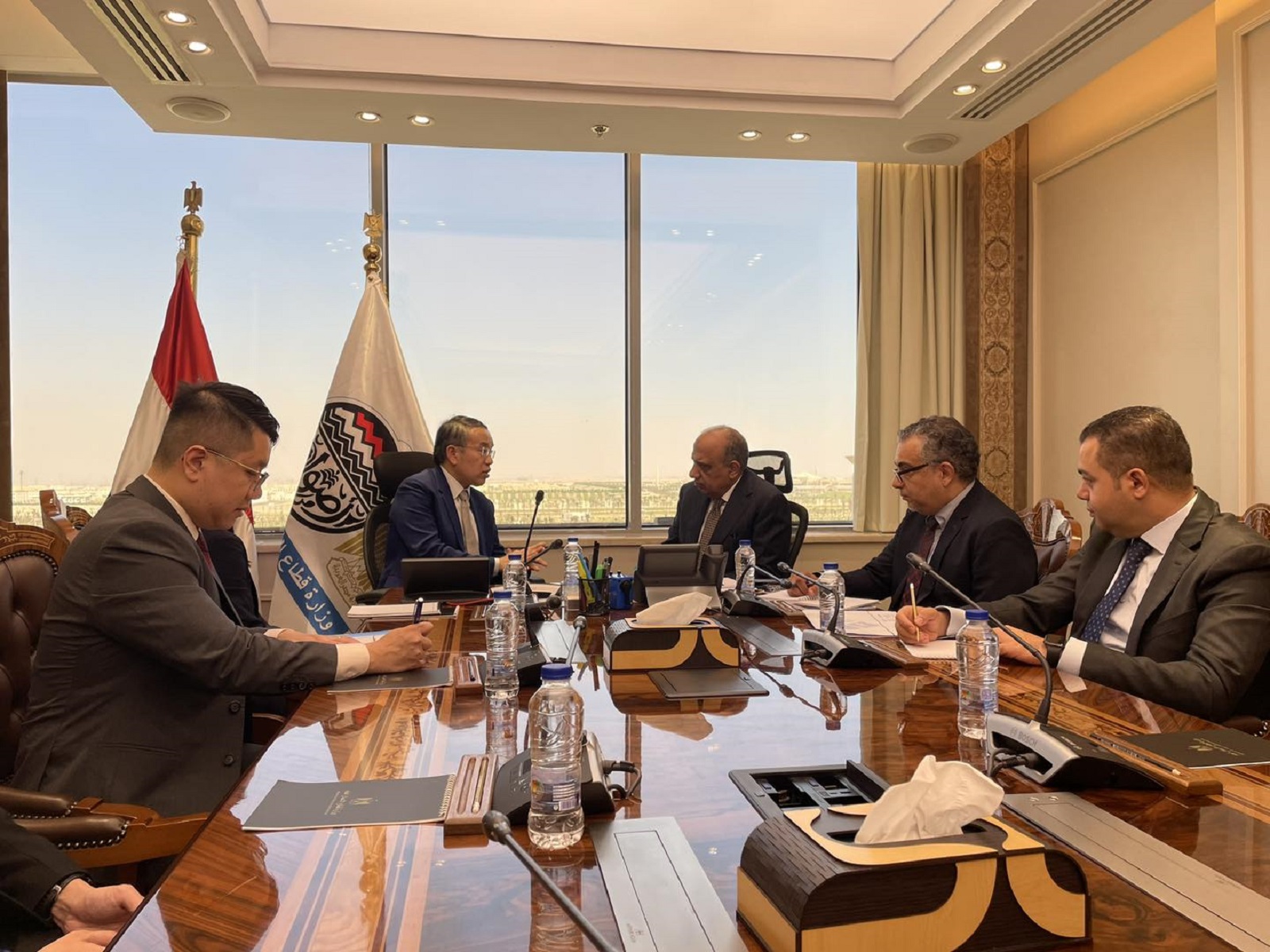
Will Egypt and Hong Kong agree on renewables infrastructure projects soon? Egypt’s Public Enterprise Minister Mahmoud Essmat met with Hong Kong’s Secretary for Financial Services and Treasury Christopher Hui yesterday to explore potential partnerships between the Egyptian government and Chinese private sector developers in clean energy infrastructure, according to a cabinet statement. Essmat expressed his office’s interest in having the firms establish new wind solar energy projects under plans to ramp up green aluminum and steel production in Egypt, while Hui said that the upcoming Egypt-Hong Kong investor meetings could see the two sides kicking the tires on further cooperation. In May, a delegation from Egypt’s Suez Canal Economic Zone visited Hong Kong to discuss partnerships in clean energy and green fuel.
OTHER STORIES WORTH KNOWING ABOUT THIS MORNING-
- Egypt and Switzerland talk cooperation: Swiss State Secretariat of Economic Affairs Helene Budliger Artieda and Egypt’s Trade and Industry Minister Ahmed Samir discussed potential investments from Swiss companies in Egypt, including potential future projects in the green economy, renewables, infrastructure, agriculture, and logistics. (Statement)
ALSO ON OUR RADAR
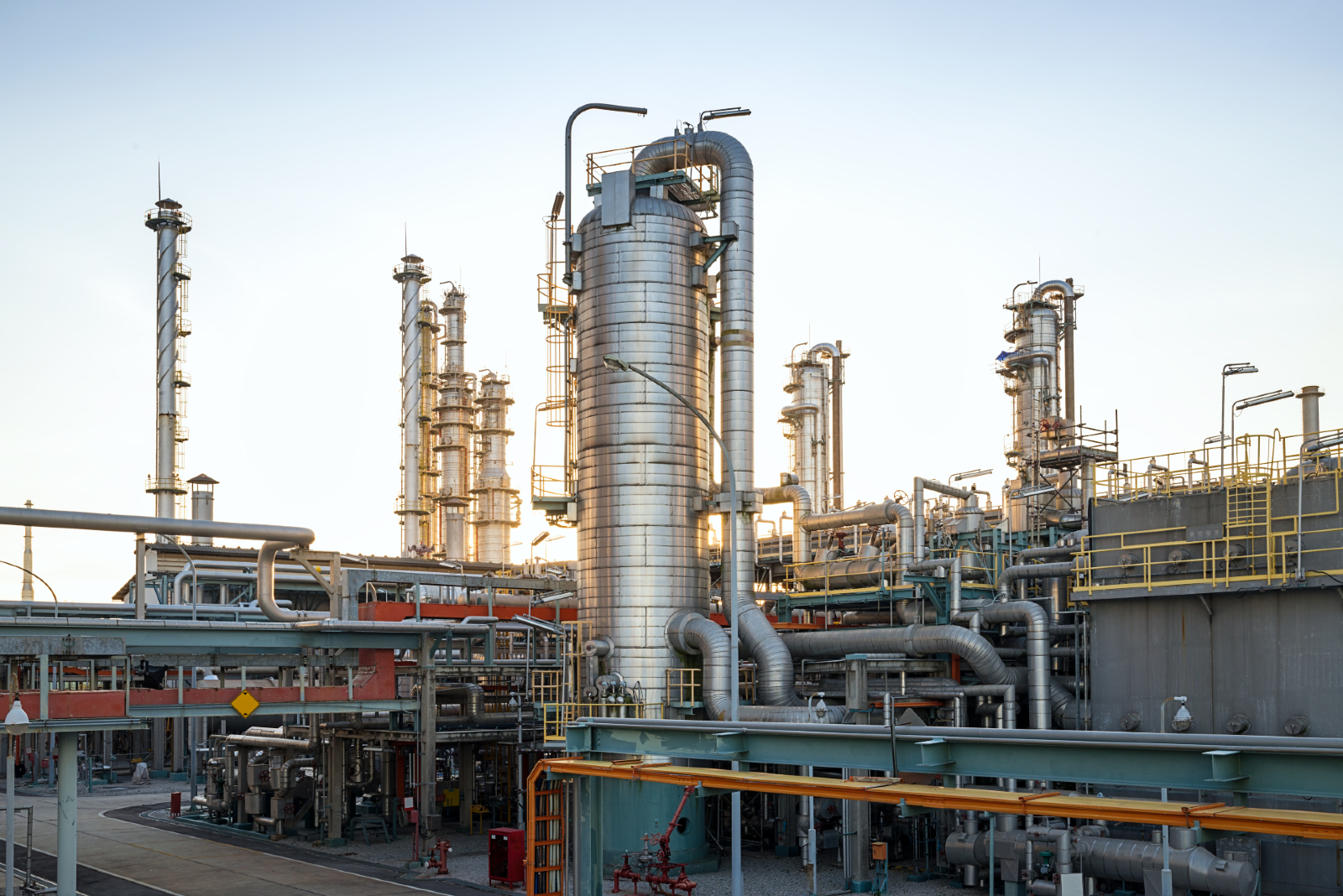
HYDROGEN-
Shell has selected Oman’s Duqm as a suitable location for its planned blue hydrogen and ammonia plant, with technical and commercial viability studies underway, Zawya reports. Being a port town, Duqm would facilitate export of the fuel in the form of blue ammonia thanks to a proposed hydrogen conversion loop. The project’s cost and timeline are expected to be announced after the completion of a feasibility study.
Project profile: The proposed project aims to supply blue, low-carbon hydrogen and ammonia to local and international markets enabled by capturing and storing CO2 emitted throughout the production process. The project falls under Oman’s Vision 2040 and is heavily supported by the Energy Minerals Ministry in its ambition to reach net-zero by 2050.
This isn’t the first hydrogen project heading to Duqm: Oman’s state-owned company Hydrom is currently overseeing the development of a hydrogen transport system across the sultanate’s southern regions of Duqm, Al Jazir, and Salalah, with plans to connect all three transmission lines by 2040, establishing a cross-country pipeline spanning 2k km to transmit green fuels.
DESALINATION-
Acciona starts up Jubail 3B desalination plant in Saudi: Renewables and water treatment company Acciona is planning to build a 61 MW solar photovoltaic project next to the Jubail 3B desalination plant in Saudi Arabia, which will help the plant cut down on conventional power consumption, Zawya reports. The desalination plant is expected to be fully operational in 2024 and will produce potable water within the next few months.
Sonatrach’s Boumerdes plant begins full operations: Operations launched yesterday for Algerian state-owned oil firm Sonatrach’s 80k cbm / day desalination plant in Boumerdes province. The plant will supply water to homes in Boumerdes and Algiers. The first phase was initially launched in July. (Statement)
OTHER STORIES WORTH KNOWING ABOUT THIS MORNING-
- Italian space data organization to support KSA afforestation initiative: Planetek Italia has joined forces with Geosystems Middle East and Stockholm-based Hexagon to support afforestation initiatives in Saudi Arabia through advanced Earth Observation monitoring services. The initiative seeks to plant 10 bn trees while focusing on land preservation measures under the National Center for Vegetation Cover. (Statement)
- Amantra FM partners with AtmosAir to reduce indoor air pollution in Middle East: Dubai-based facilities management company Amantra FM is partnering with US AC and ventilation company AtmosAir and its authorized reseller Circulus to become the Middle East region’s distributor and promoter of AtmosAir’s bi-polar ionization technology, which boasts a pathogen reduction rate of up to 99% in indoor environments. (Khaleej Times)
- Bahrain’s EWA inks USD 60 mn grid agreement with Korean firm: South korean cable manufacturer Taihan Cable has signed an agreement with Bahrain’s Electricity and Water Authority to install 400kV underground cables in Al Jasra, Bahrain, the company said in a statement on Friday. Taihan is set to supply high-voltage cables, carry out power grid construction, and run test operations. (Zawya)
- Progress in Egypt’s carbon certificates: Six companies in Egypt have issued 230k voluntary carbon certificates, ahead of the Financial Regulatory Authority launching a carbon market in the country. (Daily News)
AROUND THE WORLD
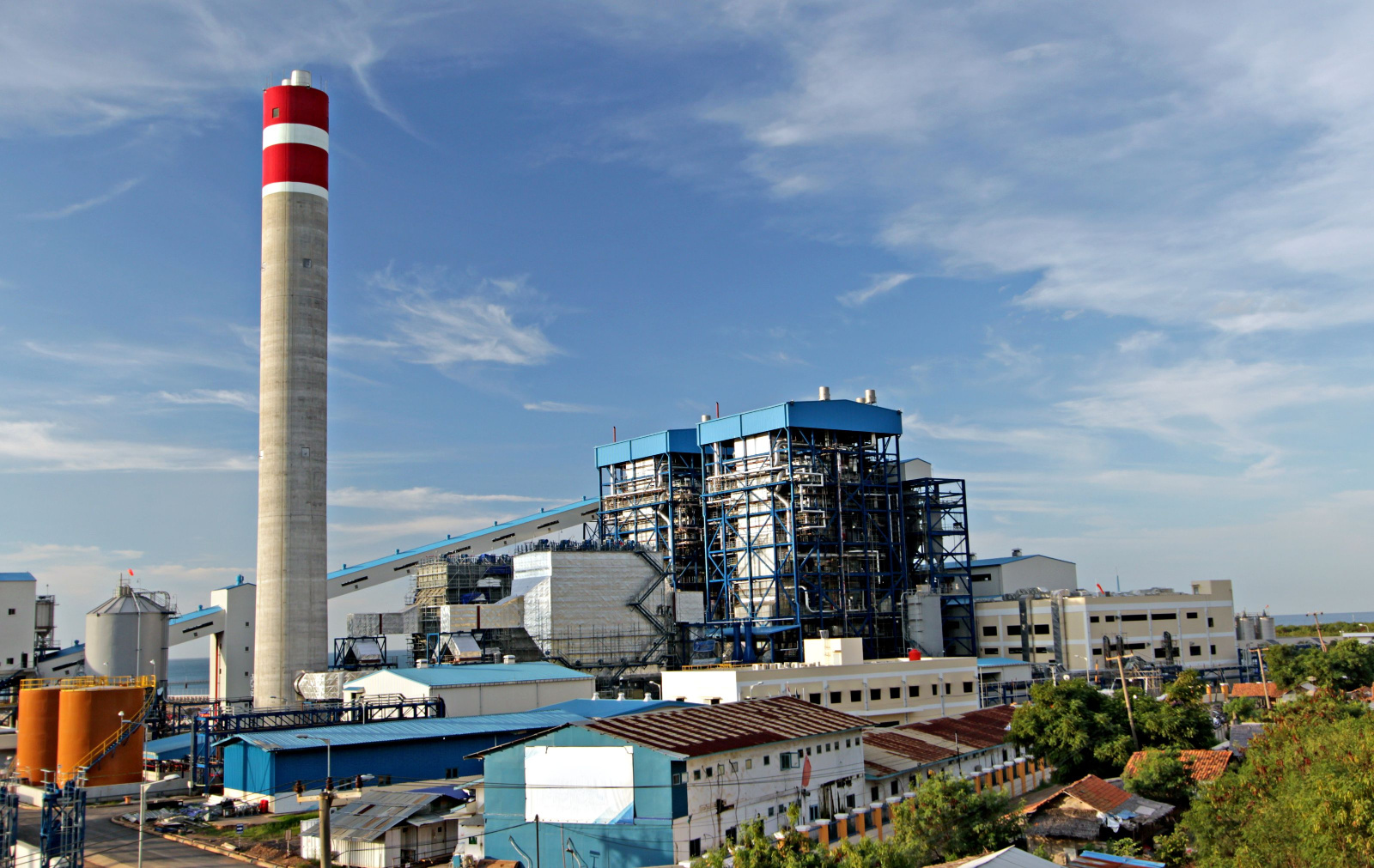
Indonesia’s JETP energy transition plans hit a snag: Indonesia's plans for the early retirement of coal-fired power plants as part of its Just Energy Transition Partnership (JETP) initiative have come to a halt as its Western partners are not ready to finance the project, Reuters reports. The country had planned on announcing a USD 20 bn climate fund plan in October, but talks with international partners were delayed due to rising borrowing costs. Some of the prospective investors were reluctant to finance the early retirement of coal power plants so as not to be seen as financing coal projects. Under JETP, Indonesia is set to cap the power sector's carbon emissions at 290 mn metric tons by 2030.
One of the world’s largest carbon emitters: Indonesia — which has set out a target of sourcing 23% of its energy needs from renewables by 2025 under 2060 carbon neutrality plans — remains the world’s third largest coal mining country, producing some 600 mn tons of CO2 equivalent annually, making it the ninth largest carbon emitter globally, according to the International Energy Agency. Indonesia — which saw its coal burning levels increase 33% y-o-y in 2022 — had agreed to cap emissions from its energy sector to 290 mn metric tons by 2030 under the the Just Energy Transition Partnership (JETP) following commitments by western nations lead by the United States and Japan, who had committed to providing climate financing including equity investments, grants and concessional loans, Reuters notes. Indonesia inked a separate agreement with the Asian Development Bank back in November to decommission a 660 MW coal plant in West Java through refinancing of between USD 250-350 mn.
Tanzania's NMB Bank is issuing a 10-year, multi-currency, medium-term sustainability bond worth USD 400 mn to fund renewable energy, energy efficiency, green transport, and waste-water treatment projects, the bank said in a regulatory statement (pdf). Supported by FSD Africa, which promotes financial inclusivity in the region, the bonds will have a three-year tenor and an annual interest rate of 9.5% to be paid quarterly, and will be on sale until 27 October. The first tranche of the Jamii bond is expected to raise approximately USD 30 mn, with an additional USD 10 mn if demand permits. The bond sale will also raise USD 10 mn from offshore private investors, with an additional USD 5 mn raised if there is appropriate investor demand.
REMEMBER- This launch follows the move of another Tanzanian commercial bank, CRDB Bank, kicked off its USD 300 mn green bond issuance program last month.
Tajikistan aims to produce 1 mn tonnes of clean hydrogen by 2040: Tajikistan plans to capitalize on its estimated 527 TWh hydroelectric energy capacity as well as other renewable sources to produce up to 500k tonnes of green hydrogen annually by 2030, before doubling its planned generation volumes to 1 mn tonnes by 2040, the country’s Energy and Water Resources Minister Daler Juma told Reuters on Monday, without specifying the state’s budget for its green fuels production strategy. The country plans to expand its renewable energy capacity to 10 GW by 2030 as part of plans to become a green fuel exporter and minimize dependency on Russian oil imports, the newswire quotes Juma as saying. The country will leverage its “affordable, competitive electric power” from future clean energy projects to export up to 75% of its low-carbon hydrogen to other Central Asian countries. Tajikistan wants to have solar and wind comprise up to 10% of its energy mix by 2030 in a bid to diversify its electric power sources.
OTHER STORIES WORTH KNOWING ABOUT THIS MORNING-
- Japan in talks to export captured CO2 to Malaysia for the first time: Japan is looking to strike an agreement with Malaysia to export and store its industrial and power CO2 emissions in the Southeast Asian country starting 2028. The MoU is scheduled to be signed in a meeting between Japanese Economy Minister Yasutoshi Nishimura and executives from the Malaysian state oil company Petronas, on the sidelines of Tokyo GX Week. (Nikkei)
- KoBold Metals to accelerate search for key minerals needed for green transition: California-based KoBold Metals is spending about USD 150 mn to accelerate its search for more mineral deposits at its existing project in Mingomba, Zambia. It also plans to begin producing copper and cobalt in Zambia within 10 years. KoBold is backed by bn’aires Bill Gates and Jeff Bezos. (Reuters)
ON YOUR WAY OUT
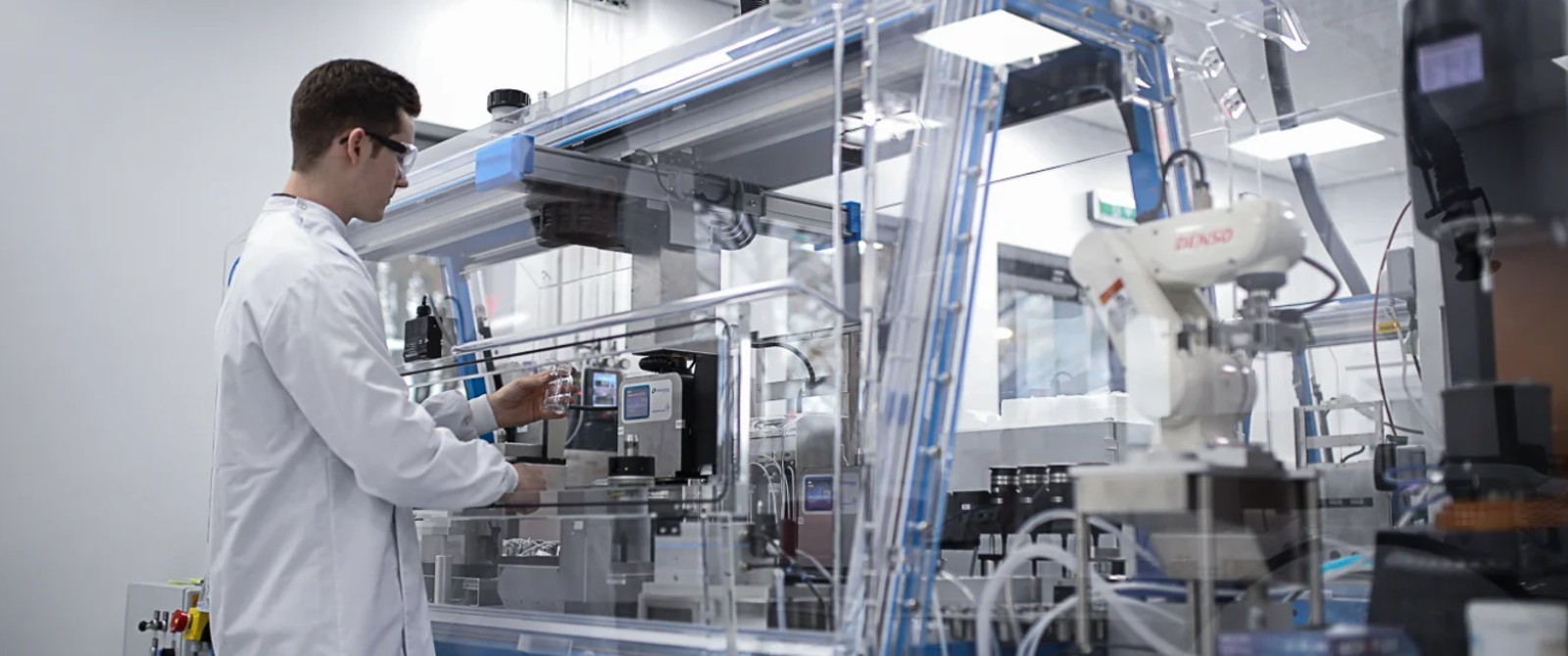
British high-tech company Descycle is “implementing science fiction” in recycling metals to support AI growth, managing director and co-founder Leo Howden said at CogX festival in London on Friday, The National writes. Descycle uses chemical innovations to dissolve the metals in electronic waste and recycle them, supplying a growing demand for metals and sparing the smelters and toxic chemicals conventionally needed to process these metals.
The rationale: Soon enough, exponential AI growth will need far more data centers and complex hardware, meaning a lot more metal will be required. This includes more copper wire and plating to conduct electricity, more gold for high speed connections, and more palladium for power delivery. Descycle looks to fill that gap with recycled metals.
The technology: Based on a new strand of chemistry, known as deep eutectic solvents, or Des, which includes a mixture of organic, biodegradable, and recyclable commodities, Descycle can transform a metal into a liquid in the most-carbon efficient way there is, “just like a cube of sugar dissolves in a cup of coffee” said Howden. This means the metal in e-waste such as old circuit boards can be recovered without the need for high temperatures in energy-hungry smelters.“If you want copper for electrification, we can get the copper out. If you want nickel, cobalt, manganese for electric vehicle batteries, we can get that out, too,” he added.
Why it matters: Without recycling technologies like Des, the growth in AI and decarbonising products — think EVs — could lead the world down a tricky environmental path. Globally, over 50 mn tonnes of e-waste is produced every year, only 17% of which gets recycled, and that’s forecasted to double in the near future, Descycle’s managing director explained. Great opportunities arise from e-waste which could potentially create a circular economy for metals.
More on Descycle: Founded in 2018, the London-based deep-tech company aims to transform the metals industry with clean technology. Descycle is the world’s fastest growing waste stream and is expected to reach USD 82 bn annually by 2030. The company works with multiple metals and mining partners to supply critical and battery metals that would get the ball rolling on a global transition to a low-carbon economy.
CALENDAR
SEPTEMBER 2023
26-27 September (Tuesday-Wednesday): GCC-Iraq Business Forum, Sharjah, UAE.
27-29 September (Wednesday-Friday): Algeria’s International Exhibition for Renewable Energy and the Environment, Algiers, Algeria.
28 September (Thursday): International Energy Agency Critical Minerals and Clean Energy Summit, Paris, France.
Chariot Limited and Total Eren’s feasibility study on a 10 GW green hydrogen plant in Mauritania is to be completed.
Egypt set to launch alliance to shore up climate financing in developing countries.
OCTOBER 2023
2-5 October (Monday-Thursday): ADIPEC Decarbonization Accelerator, Abu Dhabi, UAE.
4 October (Wednesday): Arabia CSR Gala Awarding Ceremony, UAE.
4-5 October (Wednesday-Thursday): Future Sustainability Forum, Dubai, UAE.
8-10 October (Sunday-Tuesday): Saudi Green Building Forum, Riyadh, Saudi Arabia.
10-11 October (Tuesday-Wednesday): Green Energy Africa Summit, Cape Town International Convention Centre 2, Cape Town, South Africa.
8-12 October (Sunday-Thursday): MENA Climate Week, Riyadh, Saudi Arabia.
9-15 October (Monday-Sunday): World Bank/IMF 2023 Annual Meetings, Marrakech, Morocco.
10-12 October (Tuesday-Thursday): Autonomous E-Mobility Forum, Doha, Qatar.
16-17 October (Monday-Tuesday): Duqm Economic Forum, Duqm, Oman.
16-18 October (Monday-Wednesday): Climate Week, Rome, Italy.
16-20 October (Monday-Friday): UNCTAD World Investment Forum, Abu Dhabi, UAE.
18-20 October (Wednesday-Friday): Morocco and Belgium business meeting on green hydrogen, Tangiers, Morocco.
17-18 October (Tuesday- Wednesday): Critical Minerals Africa Summit, Cape Town, South Africa.
17-19 October (Tuesday-Thursday): Energy Intelligence Forum, London, UK.
17-20 October (Tuesday-Friday): Fourth meeting of the COP27 Transitional Committee, Aswan, Egypt.
25-26 October (Friday-Saturday): Offshore & Floating Wind Europe 2023, London, United Kingdom.
29 October-2 November (Sunday-Thursday): Cairo Water Week, Cairo, Egypt
30 October – 1 November (Monday-Wednesday) ISWA 2023 World Congress: Global action towards a net-zero future, Muscat, Oman.
31 October-2 November (Tuesday-Thursday): Financial Times’ Energy Transition Summit, London, UK.
31 October-2 November (Tuesday-Thursday): World Hydropower Congress, Bali, Indonesia.
NOVEMBER 2023
1-3 November (Wednesday-Friday): Forbes Middle East Sustainability Leaders Summit 2023, Abu Dhabi, UAE.
7-8 November (Tuesday-Wednesday): ADIA Lab Symposium on Climate Change and Health Sciences, Abu Dhabi, UAE.
7-8 November (Tuesday-Wednesday): The 2023 US Algeria Energy Forum, Washington DC, USA.
9-10 November (Thursday-Friday): International Renewable Energy Agency Investment Forum, Uruguay.
9-15 November (Thursday-Wednesday): Intra-African Trade Fair 2023, Cairo, Egypt.
15-17 November (Wednesday-Friday): WETEX and Dubai Solar Show, Dubai, UAE.
15-18 November (Wednesday-Saturday): DEWA’s First MENA Solar Conference, Dubai, UAE.
20-24 November (Monday-Friday) International Civil Aviation Organisation’s Aviation and Alternative Fuels conference, Dubai, UAE.
27-30 November (Monday-Thursday) Abu Dhabi Finance Week (ADFW), Abu Dhabi, UAE.
28-29 November (Tuesday-Wednesday): World Green Economy Summit (WGES), Dubai, UAE.
30 November – 12 December (Thursday-Tuesday): Conference of the Parties (COP 28), Dubai, UAE.
DECEMBER 2023
4 December (Monday): Saudi Green Initiative Forum, Dubai, UAE.
4 December (Monday): Abu Dhabi Sustainability Week (ADSW) summit, Dubai, UAE.
8 December (Friday): Youth for Sustainability Forum (Y4S), Dubai, UAE.
12-14 December (Tuesday-Thursday): Green Hydrogen Summit Oman, Oman Convention and Exhibition Center, Muscat, Oman.
18-20 December (Monday-Wednesday): Saudi Arabia Smart Grid Conference, Hilton Riyadh Hotel & Residences, Riyadh, Saudi Arabia.
JANUARY 2024
9-11 January (Tuesday-Thursday): Future Minerals Forum, Riyadh, Saudi Arabia.
FEBRUARY 2024
26-28 February (Monday-Wednesday): Management and Sustainability of Water Resources, Dubai, UAE.
MARCH 2024
4-6 March (Monday-Wednesday): International Conference on Sand and Dust Storms in the Arabian Peninsula, Riyadh, Saudi Arabia.
APRIL 2024
16-18 April (Tuesday-Thursday): World Future Energy Summit, Abu Dhabi, UAE.
23-25 April (Tuesday-Thursday): Connecting Green Hydrogen MENA, Dubai, UAE.
JUNE 2024
5 June (Wednesday): World Environment Day, Saudi Arabia.
DECEMBER 2024
2-13 December (Monday-Friday): Conference of the Parties (COP16) to the United Nation Convention to Combat Desertification, Riyadh, KSA.
EVENTS WITH NO SET DATE
2023
Mid-2023: Oman set to sign contracts for green hydrogen projects.
Mid-2023: Sale of Sembcorp Energy India Limited to consortium of Omani investors to close.
Phase C of the 900-MW of the Mohammed bin Rashid Al Maktoum Solar Park in Dubai to be completed.
Saudi Basic Industries Corporation (Sabic) steam cracker furnace powered by renewable energy to come online.
2024
12-14 February (Monday-Wednesday): Sustainable Aviation Futures MENA Congress, Dubai, UAE.
End-2024: Emirati Masdar’s 500 MW wind farm in Uzbekistan to begin commercial operations.
QatarEnergy’s industrial cities solar power project will start electricity production.
2025
International Union for Conservation of Nature World Conservation Congress, Abu Dhabi, UAE.
UAE to have over 1k EV charging stations installed.
2026
UITP Global Public Transport Summit, Dubai, UAE.
1Q 2026: QatarEnergy’s USD 1 bn blue ammonia plant to be completed.
End-2026: HSBC Bahrain to eliminate single-use PVC plastic cards.
2027
MENA’s district cooling market is expected to reach USD 15 bn.
2030
UAE’s Abu Dhabi Commercial Bank (ADCB) wants to provide AED 35 bn in green financing.
UAE targets 14 GW in clean energy capacity.
Tunisia targets 30% of renewables in its energy mix.
Qatar wants to generate USD 17 bn from its circular economy, creating 9k-19k jobs.
Morocco’s Xlinks solar and wind energy project to generate 10.5 GW of energy.
2035
Qatar to capture up to 11 mn tons of CO2 annually.
2045
Qatar’s Public Works Authority’s (Ashghal) USD 1.5 bn sewage treatment facility to reach 600k cm/d capacity.
2050
Tunisia’s carbon neutrality target.
2060
Nigeria aims to achieve its net-zero emissions target.
Enterprise Climate is available without charge thanks to the generous support of HSBC (tax ID: 204-901-715), the leading corporate and retail lender in Egypt; and Infinity Power (tax ID: 305-170-682), the leading generator and distributor of renewable energy in Africa and the Middle East. Enterprise Climate is delivered Mon-Thurs before 4 am UAE time. Were you forwarded this copy? Sign up for your own delivery at climate.enterprise.press. Contact us on climate@enterprisemea.com.


